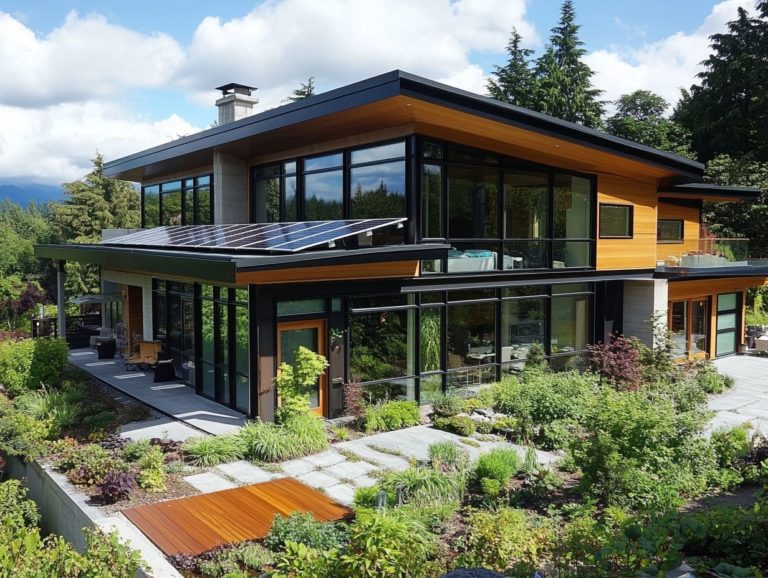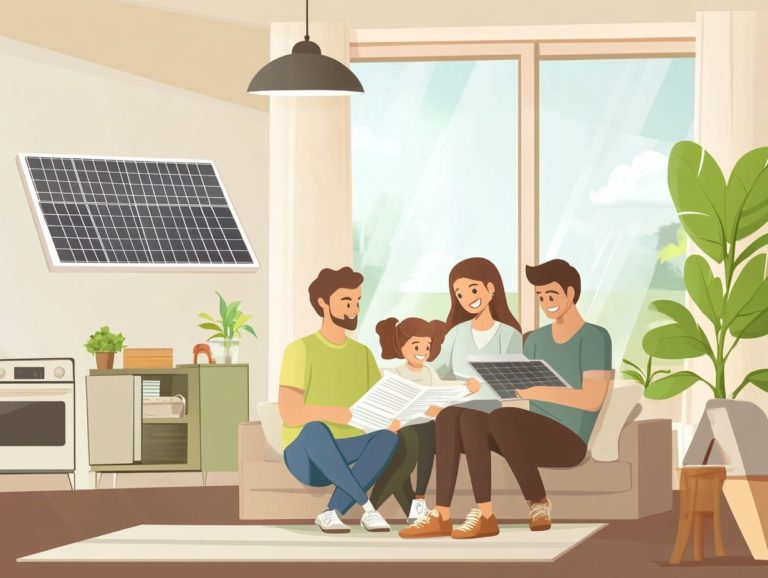What is the Role of Smart Grids in Home Energy?
Smart grids are revolutionizing how you manage energy in your home. They provide solutions that enhance efficiency, lower costs, and reduce environmental impacts.
By integrating advanced technologies and sophisticated communication systems, smart grids allow you to monitor and optimize your energy consumption seamlessly.
This article explores the benefits that smart grids offer for home energy management, how they function, and practical steps for implementation. Get ready for an exciting future!
Discover how this technology can completely transform your energy experience for the better.
Contents
Key Takeaways:
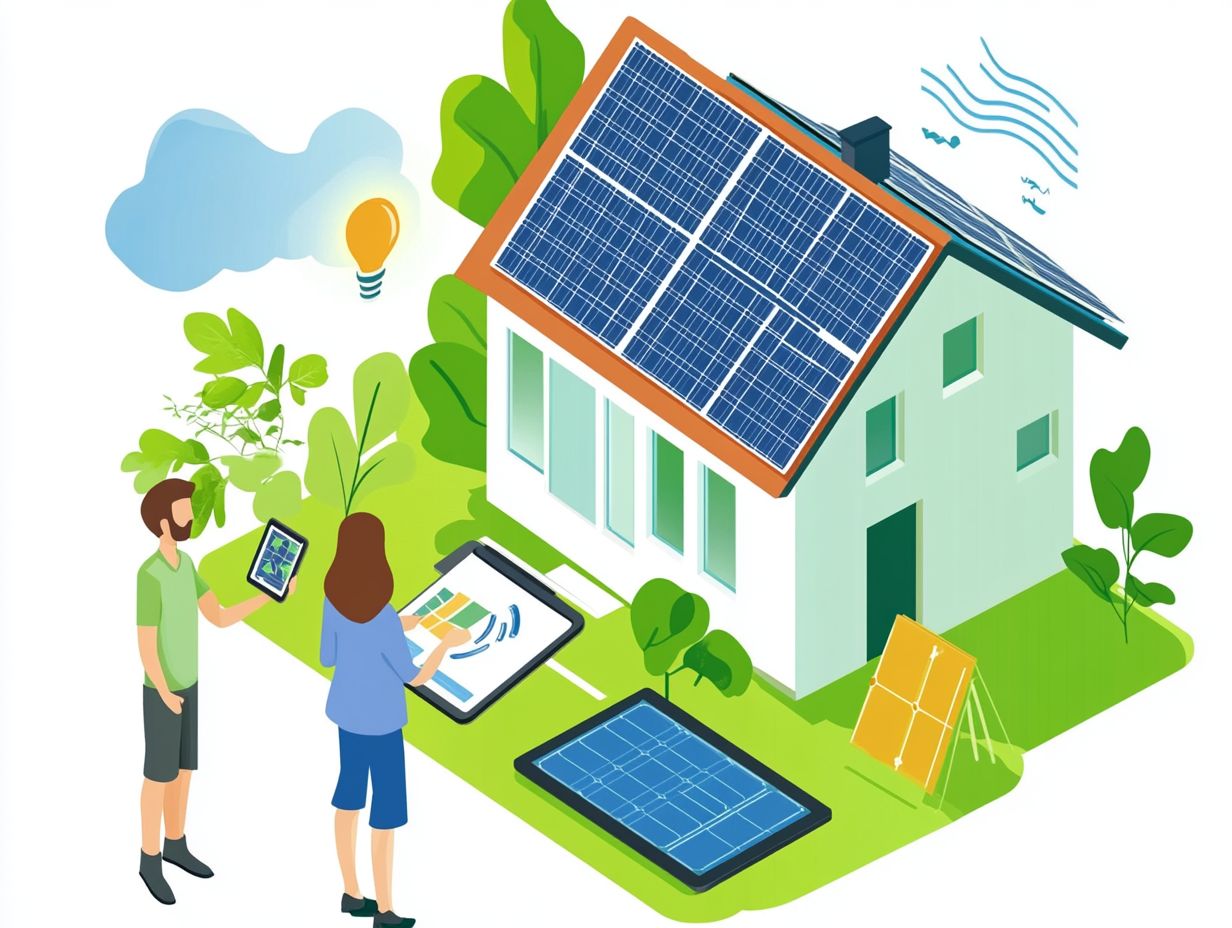
Definition and Function
The smart grid is a sophisticated electrical network that integrates digital technology and automated systems. This innovative system enhances the efficiency, reliability, and sustainability of electricity delivery while allowing real-time data communication between energy providers and consumers.
This interconnected framework offers improved energy management, integrates renewable energy sources, and optimizes electricity usage. It responds to peak demand and reduces the likelihood of power outages, providing a resilient energy solution for your needs.
Benefits of Smart Grids for Home Energy
The advantages of smart grids for managing home energy are abundant. You ll experience enhanced energy efficiency, leading to substantial savings on your energy bills.
You ll also help reduce your environmental footprint by utilizing renewable energy sources and smart appliances. This technology benefits your wallet and supports a more sustainable future.
Improved Energy Efficiency
Smart grids empower you to monitor and manage your electricity usage in real-time. This paves the way for significant energy savings and optimized consumption.
Using advanced technologies like smart meters and robust energy management systems, you can track your energy usage patterns and identify peak consumption times. For example, a smart meter provides insights into your electricity usage, helping you adjust your habits effectively.
You can implement automated systems to control your appliances, scheduling operations during off-peak hours when rates are lower. This transforms your household into an energy-efficient powerhouse, helping lower your utility bills and supporting a sustainable environment.
Cost Savings
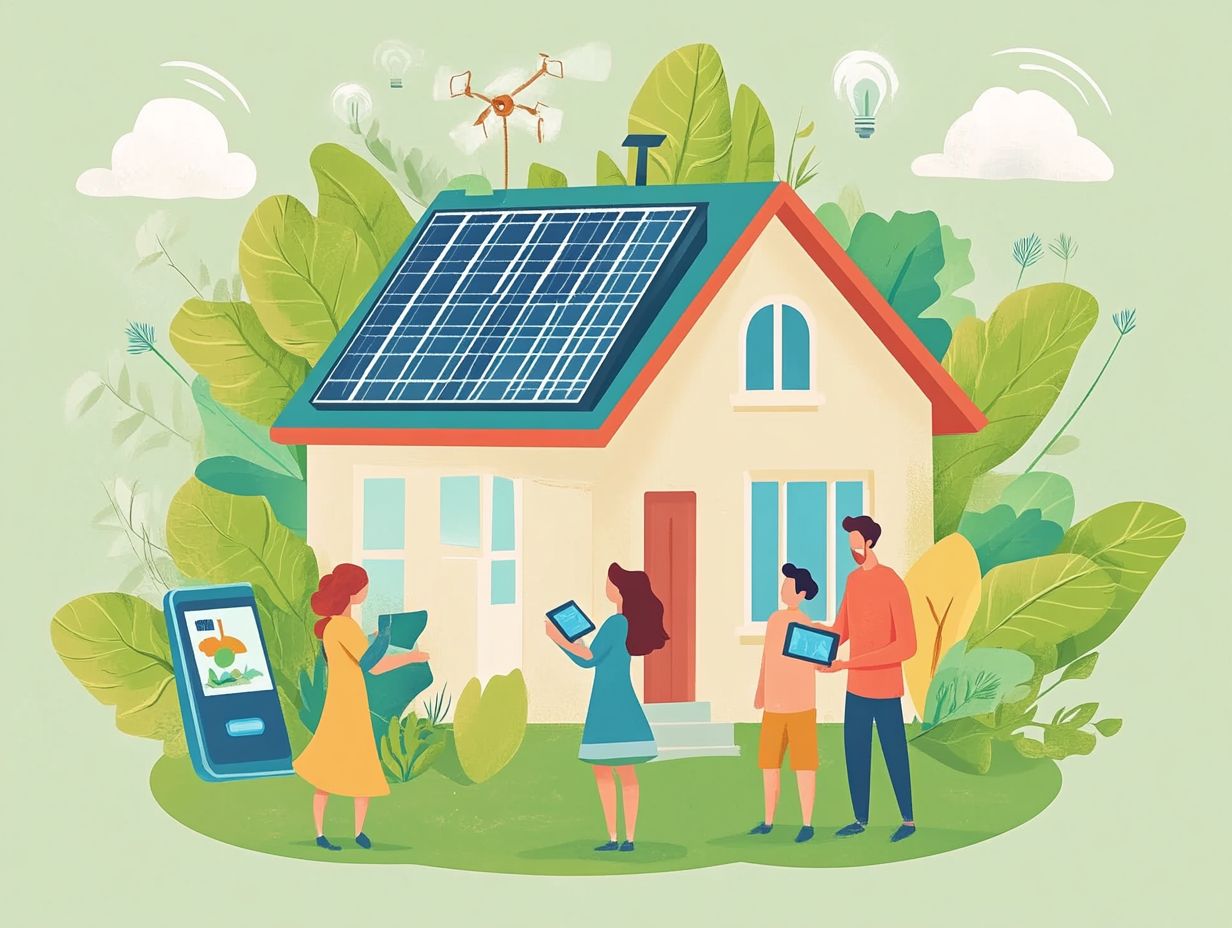
One compelling advantage of a smart grid is the potential for substantial cost savings on energy expenses. This gives you control over your energy management, ultimately lowering utility bills.
By using time-of-use pricing, where energy costs vary based on the time of day, you can cut costs by shifting energy consumption to off-peak hours when rates are more favorable. You can also benefit from energy efficiency incentives from utility companies, such as rebates for upgrading to energy-efficient appliances and smart thermostats.
Smart appliances with load management features allow you to optimize energy usage during cheaper time slots, maximizing your smart grid benefits. For insights on how this technology is shaping our lives, explore the future of home energy management with smart tech. As a result, you lower your energy costs and contribute to a more sustainable energy system.
Reduced Environmental Impact
The adoption of smart grids plays a pivotal role in minimizing your environmental impact. They seamlessly integrate renewable energy sources and empower you to take an active part in climate change mitigation.
These advanced systems create a more flexible and responsive energy infrastructure. This allows smooth incorporation of solar panels and wind power into your energy setup.
By enabling you to monitor your consumption patterns, you can make informed choices. This helps reduce waste and lower your carbon footprint.
Ultimately, this approach enhances sustainability and fosters a sense of collective responsibility for preserving our environment.
How Smart Grids Work
Smart grids operate through an effective combination of essential components and technologies. This enables you to achieve efficient power supply and management.
With modern metering and two-way communication, these systems let you monitor and optimize electricity flow easily, enhancing grid performance.
Key Components and Technologies
Key components of the smart grid include smart meters, automated controls, and sensors. Together, they allow real-time data monitoring and management of your electricity usage.
These innovative technologies help enhance energy efficiency. You can track your consumption and make informed decisions about your usage.
For example, smart meters provide detailed insights into your energy consumption at various times. This helps you identify peak hours and adjust your habits.
Automated controls ensure seamless integration of renewable energy sources. This allows energy providers to manage supply and demand fluctuations effectively.
Sensors gather critical data that optimize the grid’s performance, enhancing reliability and supporting a more sustainable energy ecosystem. This is increasingly becoming possible through innovations like how smart technology is revolutionizing home energy use.
Implementing Smart Grids in Your Home
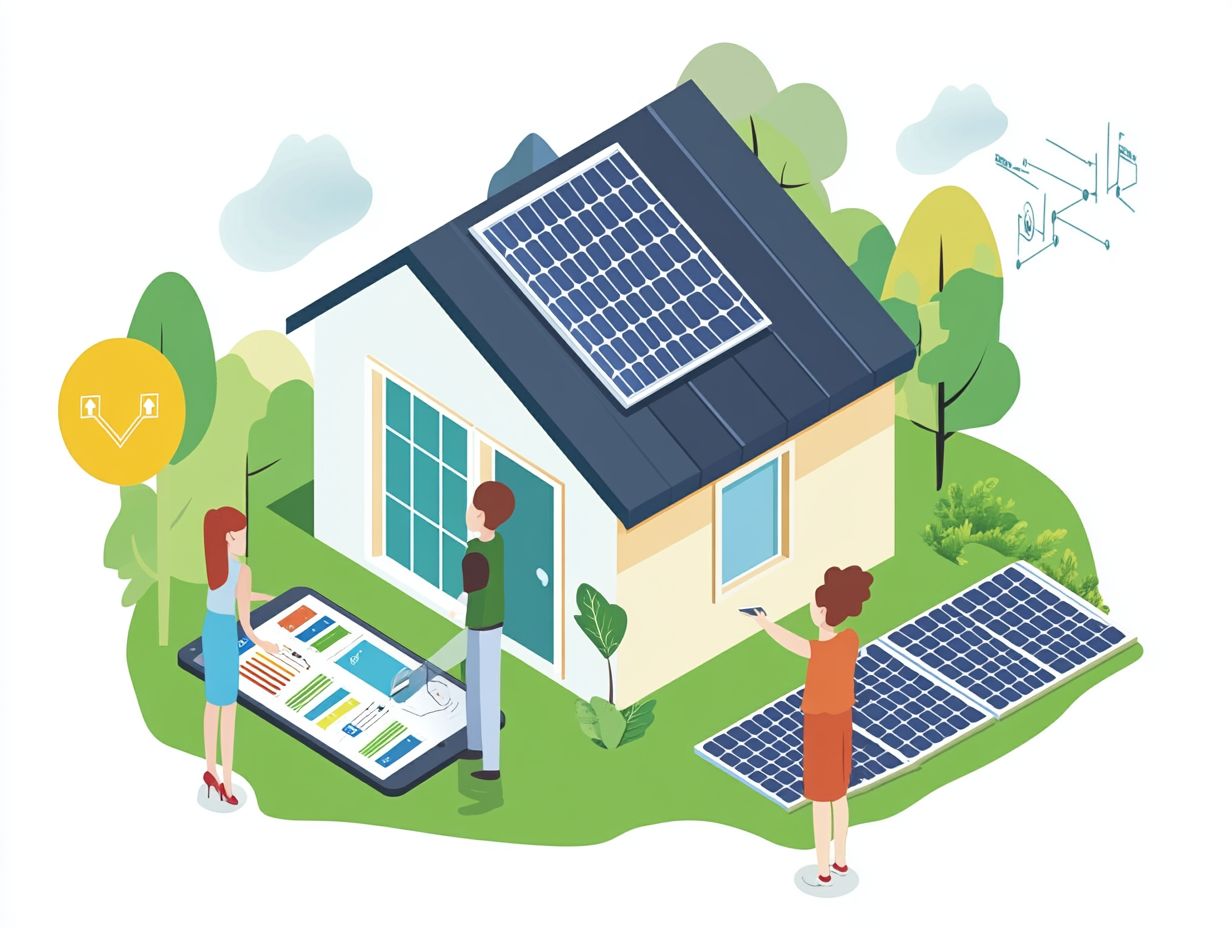
Implementing smart grids in your home means integrating smart appliances with an advanced energy management system. This integration optimizes energy usage and boosts efficiency, leading to significant energy savings.
Considerations and Steps to Take
When considering a smart grid for your home, weigh factors like energy management system choices and smart appliances. These will influence your energy costs.
Evaluate how well different technologies will integrate with your existing systems. Compatibility affects efficiency and overall performance.
Assess installation costs and potential savings on your energy bills. Consider any long-term financial implications.
Understanding the benefits of smart grids like real-time monitoring and improved energy efficiency will enhance your decision-making. Also, explore options for future scalability to adapt to new technologies.
Future of Smart Grids
Get ready! The future of smart grids holds exciting advancements. They will enhance grid resilience, integrate decentralized power generation, and optimize home energy management like never before.
Potential Advancements and Impact on Home Energy
Potential advancements in smart grid technology are set to transform your home energy management. This technology enables decentralized power generation and enhances the intelligence of the entire network.
With innovations like significantly improved smart meters, you’ll gain access to real-time insights into your energy usage patterns. Imagine having smart technology that learns from your habits and offers tailored recommendations to optimize your energy consumption, highlighting the importance of smart home tech in energy management.
Real-time data analytics empower you to make informed decisions. Whether adjusting your energy use during peak hours or pinpointing potential savings on your bills, this integration boosts your household’s operational efficiency. It also plays a vital role in fostering a more sustainable energy ecosystem, paving the way for the future of energy efficiency through smart homes.

Frequently Asked Questions
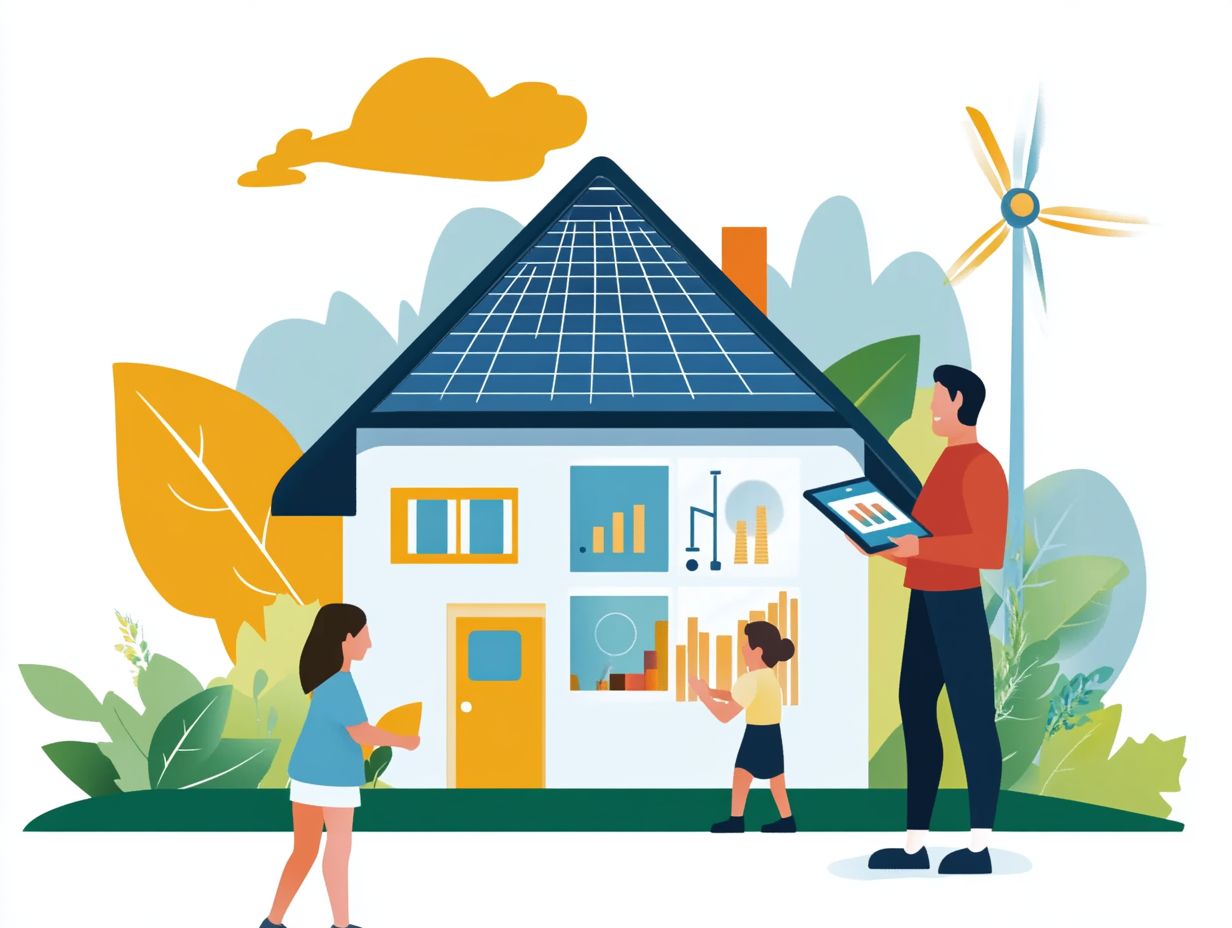
What is the Role of Smart Grids in Home Energy?
Smart grids play a crucial role in managing and optimizing home energy usage. They use advanced technology and data analytics to monitor and control energy consumption in a more efficient and sustainable way.
How do Smart Grids benefit homeowners?
By implementing smart grids, homeowners can reduce their energy costs and improve the reliability of their energy supply. They also contribute to a more sustainable energy future. Smart grids allow homeowners to track their energy usage in real-time, enabling informed decisions about consumption.
What are the key features of a Smart Grid?
A Smart Grid consists of smart meters, sensors, and communication networks that collect and transfer data about energy usage and grid performance. It includes advanced control systems that can adjust energy supply and demand in real-time, enhancing the overall energy management experience.
How do Smart Grids help with renewable energy integration?
Smart grids facilitate the integration of renewable energy sources, such as solar and wind power, into the traditional energy grid. They manage the variability and unpredictability of these sources, making it easier to incorporate them into the grid and reduce reliance on fossil fuels.
What role do Smart Grids play in managing peak energy demand?
Smart grids help manage peak energy demand by implementing demand response programs. These programs encourage homeowners to shift their energy usage to off-peak hours, reducing strain on the grid during high-demand times and avoiding potential power outages.
Don’t miss out on this energy revolution! Explore how smart grids can benefit your home today!
Are there any potential drawbacks to Smart Grids?
Smart grids offer many benefits, including stronger electricity networks and greater energy savings. However, they can also come with some challenges.
The primary drawbacks include high installation costs and possible cybersecurity risks. With careful planning and effective monitoring systems, these issues can be addressed.
Overall, the remarkable advantages of smart grids make them a worthy investment. They can transform our energy landscape for the better!

